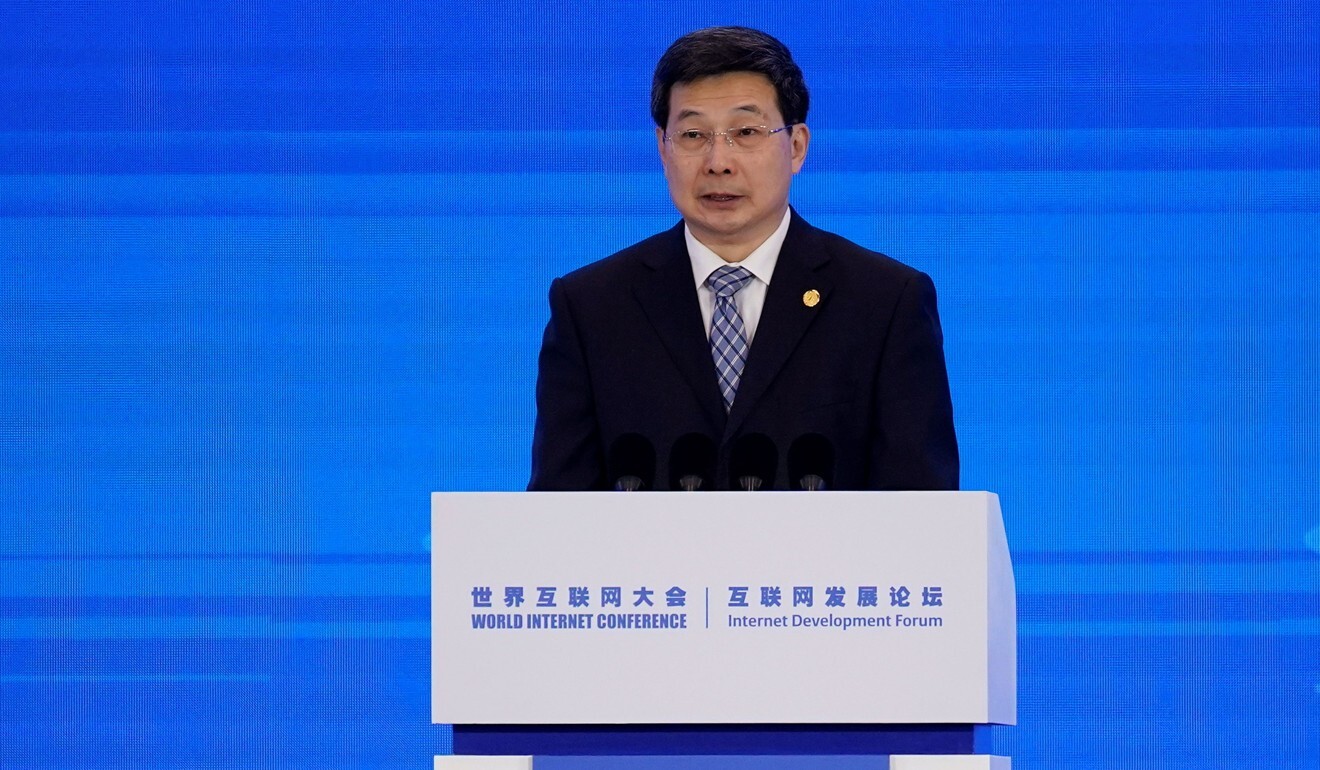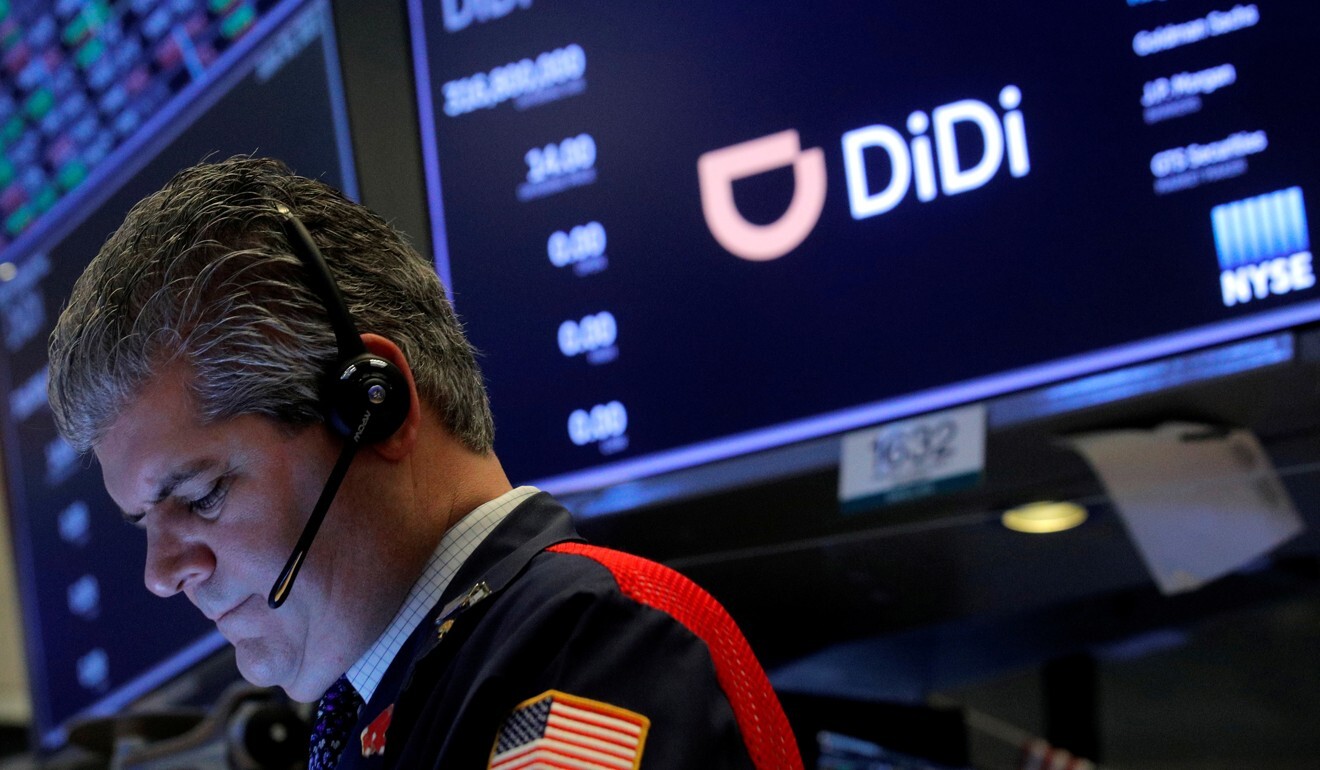
China removes 25 more Didi-linked apps from stores, tightening noose around nation’s biggest ride-hailing service
- Newly blacklisted apps include the popular Didi Shunfeng, used by ride-pooling passengers, and several tailored for Didi drivers
- One more blow to the company as it deals with a government crackdown at home and litigation overseas
Chinese regulators blacklisted 25 more apps associated with the ride-hailing platform Didi Chuxing on Friday, the latest blow to the company as it reckons with a government crackdown at home and litigation overseas.
In a notice posted late Friday evening, the Cyberspace Administration of China (CAC) demanded that more than two dozen additional apps tied to Didi be scrubbed from China’s app stores, alleging the illegal collection of user data.
In similar language to its original directive, which had been issued against Didi on Sunday, the CAC ordered the 25 apps to “thoroughly rectify the existing problems in strict accordance with the requirements of the law and according to national standards”.

The apps included platforms catering to enterprise clients and those moving freight, as well as apps tailored for Didi drivers, such as those used to manage dashcam footage.
The newly blacklisted apps also include Didi Shunfeng, a popular ride-pooling app that allows passengers travelling in the same direction to share a car.
Just hours after the notice, many of the apps appeared to be inaccessible on Chinese app stores.
The CAC’s notice also prohibited websites and platforms from providing links to Didi-related services.
Didi responded with a press statement overnight, saying it “will sincerely accept and resolutely obey the requirements of the relevant authorities.”
“[We will] launch in-depth investigations and rectifications of all existing problems in strict accordance with the rules and regulations, as well as with reference to relevant national standards, to guarantee the security of users’ personal information,” Didi said in a statement on its social media account.
Meng Xing, chief operating officer of Didi’s autonomous driving division, and Wang Yunbo, Head of Didi open source technology, both failed to show up at the World Artificial Intelligence Conference in Shanghai.
The company felt it’s not the time to speak in public for now, according to a staff member of the event’s organiser, declining to elaborate. Didi did not respond to requests for comment.
Didi Chuxing’s mini app disappears from WeChat and Alipay for new users
CAC officials were reported to have privately instructed Didi to postpone its New York listing, though discussions never resulted in written records.
At US$4.4 billion, Didi’s June 30 listing was the largest ever for a Chinese company in New York. In the following few days, the CAC ordered Didi to stop registering new users, then banned app stores from hosting its main app.

Didi’s mini programme was also swiftly removed from the Alipay and WeChat super apps, the two most widely used digital platforms among China’s mobile internet users. Alipay is operated by Alibaba, the owner of South China Morning Post.
The crackdown, coming amid a swell in the central government’s scrutiny of big tech, sent Didi’s price plummeting, prompting anger among shareholders and concerns among US lawmakers that the company could have misled investors about its contact with Chinese regulators.
The company now faces at least two lawsuits in the US, as well as calls from lawmakers on the Senate banking committee for an investigation by the Securities and Exchange Commission.
US senators call for inquiry into Didi’s US$4.4 billion IPO
Didi’s predicament has fuelled concerns among some investors about the vulnerability of investments in companies subject to such swift and severe actions by Beijing.
“It’s just so clear to me that people shouldn’t do business in China,” Bill Browder, a British financier and political activist, said of the predicament facing Didi and other companies that have fallen afoul of Chinese regulators.
“People say ‘I can make so much money in China’,” said Browder, appearing at a Friday panel discussion hosted by the Washington-based Hudson Institute. “Well, you know what? You can make so much money until [authorities] decide you can’t make the money any more and all of a sudden it’s worth zero.”
With additional reporting by Iris Deng in Hong Kong, Coco Feng in Shanghai.

